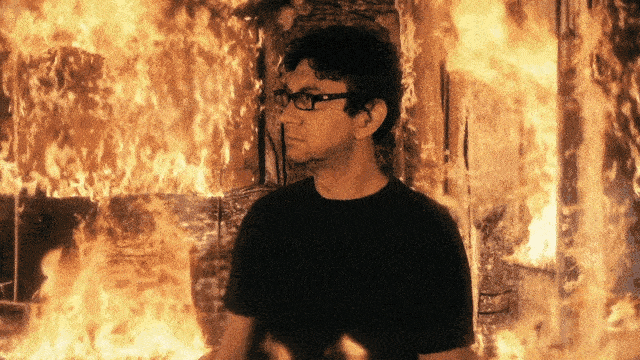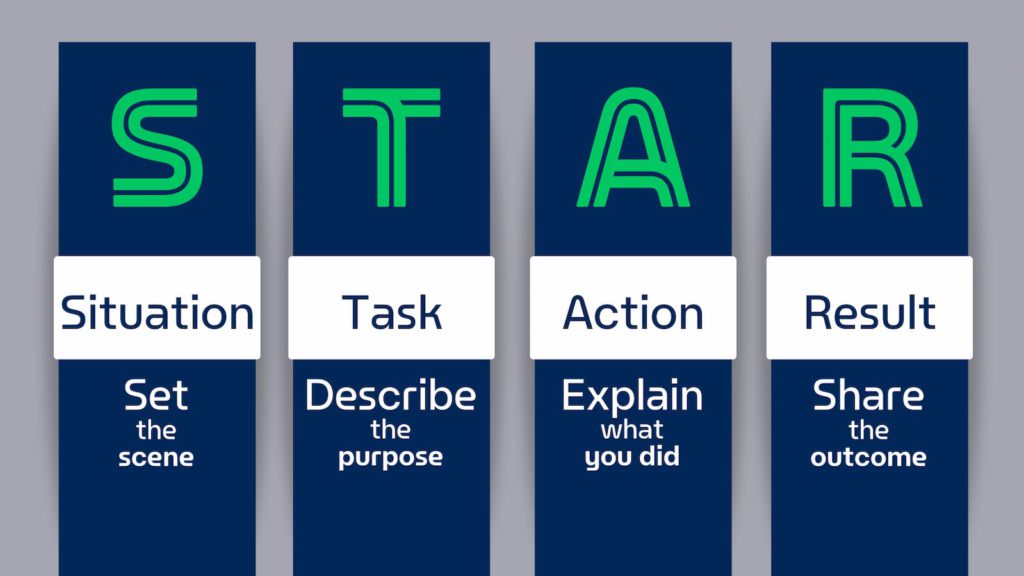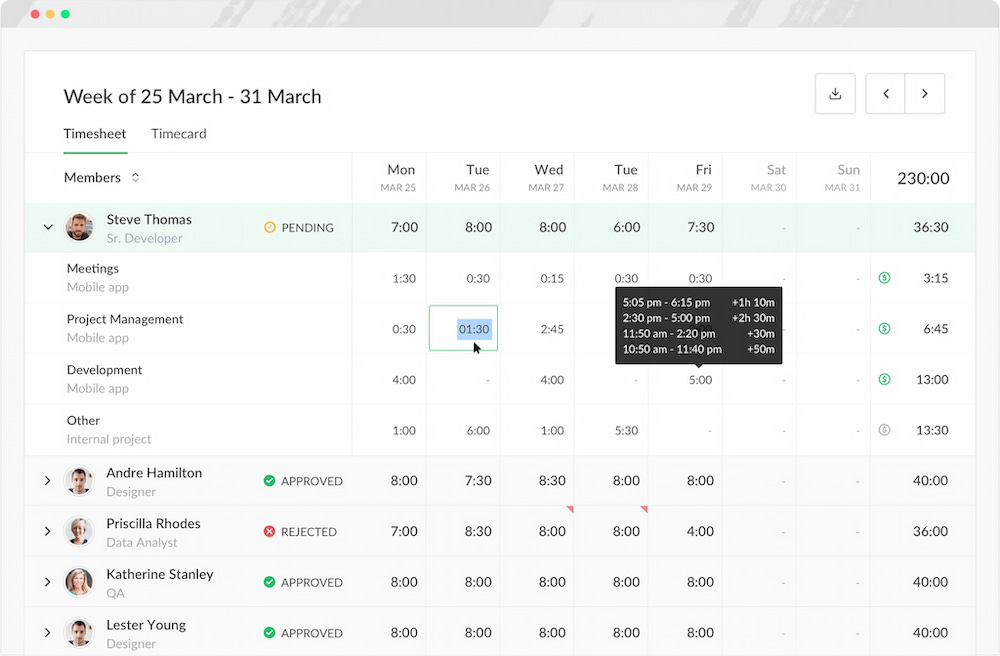Interviewing candidates is a critical step in the hiring process, but it’s not just about assessing qualifications on paper. To truly identify top talent, it’s essential to ask strategic interview questions that reveal deeper insights into a candidate’s skills, experience, and cultural fit. Crafting the right questions can help you uncover the nuances of a candidate’s abilities and potential, ensuring you make informed hiring decisions, especially when referent power influences how candidates respond. In this article, we’ll explore key strategic interview questions to ask candidates, providing you with a comprehensive guide to enhance your interview process and select the best fit for your organization.
20 Key Strategic Interview Questions for Top Talent
To identify the best candidates, it’s essential to go beyond the typical interview questions and delve deeper into their skills, experiences, and potential fit within your organization.
Strategic interview questions to ask candidates and their answers help you uncover valuable insights about a candidate’s problem-solving abilities, adaptability, cultural fit, and long-term potential.
In this section, we present 20 strategic interview questions designed to provide a comprehensive understanding of your candidates, ensuring you make well-informed hiring decisions. Each question is accompanied by an explanation of its strategic value and insights into what to expect from the candidate’s responses.
1. Can you describe a time when you had to overcome a significant challenge at work?
❓ Why this question is strategic: This question is strategic because it reveals a candidate’s problem-solving skills, resilience, and ability to navigate complex situations. It helps you understand how they approach obstacles, whether they can remain calm under pressure, and their capacity for creative thinking.
🌟 What to expect from the candidate’s answer: Expect candidates to provide a detailed account of a challenging situation, explaining the steps they took to address it, the reasoning behind their decisions, and the outcome. Look for responses that demonstrate a thoughtful and methodical approach, as well as an ability to learn from difficult experiences. This will give you a sense of their determination, resourcefulness, and ability to contribute effectively in a demanding work environment.
Just as effective problem-solving skills and thoughtful decision-making are crucial in a demanding work environment, utilizing efficient tools like Everhour can significantly enhance team productivity and streamline workflow management. It is also a great tool to track your time-to-hire.
2. How do you prioritize tasks when you have multiple deadlines to meet?
❓ Why this question is strategic: This question assesses a candidate’s time management skills, organizational abilities, and capacity to handle stress. It reveals their approach to prioritization and their ability to juggle multiple responsibilities without compromising on quality.
🌟 What to expect from the candidate’s answer: Expect candidates to describe their methods for evaluating task importance and urgency, such as using to-do lists, setting clear goals, or employing specific time management techniques like the Eisenhower Matrix. Look for responses that show a structured and disciplined approach to managing workloads, as well as an awareness of the need to balance competing demands effectively. This will indicate their ability to remain productive and focused in a fast-paced environment.
3. Can you give an example of a time when you had to work with a difficult team member?
❓ Why this question is strategic: This question highlights a candidate’s interpersonal skills, emotional intelligence, and conflict resolution abilities. It provides insight into their capacity to work effectively in diverse team dynamics and maintain positive relationships even in challenging situations.
🌟 What to expect from the candidate’s answer: Look for responses that demonstrate empathy, active listening, and a collaborative mindset. This will help you gauge their ability to navigate interpersonal challenges and contribute to a harmonious team environment.
4. How do you stay updated with the latest developments in your field?
❓ Why this question is strategic: This question assesses a candidate’s commitment to continuous learning and professional development. It reveals their proactive approach to staying current with industry trends, technologies, and best practices, which is crucial for maintaining relevance and expertise in their role.
🌟 What to expect from the candidate’s answer: Candidates should describe their methods for staying informed, such as subscribing to industry publications, attending conferences and webinars, participating in professional networks, or engaging in online courses and certifications. Look for responses that show a genuine passion for learning and a dedication to self-improvement. This will indicate their ability to adapt to changing industry landscapes and bring fresh, up-to-date knowledge to your organization.
❓ Why this question is strategic: It provides insight into a candidate’s leadership skills, project management abilities, and capacity to deliver results. It reveals their approach to planning, execution, and evaluation of projects, as well as their ability to motivate and guide a team.
🌟 What to expect from the candidate’s answer: It would be great to hear them outline a specific project they led, detailing the goals, strategies, and actions taken to achieve success. They should explain the factors that contributed to the project’s success, such as effective communication, team collaboration, resource management, and problem-solving. Look for responses that highlight their leadership qualities, expert power, strategic thinking, and ability to achieve tangible outcomes.
6. How do you handle feedback and criticism?
❓ Why this question is strategic: This question reveals a candidate’s openness to growth, self-awareness, and ability to handle constructive criticism professionally. It helps you understand their capacity for self-improvement and resilience in the face of feedback.
🌟 What to expect from the candidate’s answer: Look for responses that demonstrate a positive attitude towards feedback, a willingness to learn, and an ability to adapt based on constructive criticism. This will indicate their potential for continuous growth and improvement within your organization.

7. Can you describe a time when you had to make a difficult decision with limited information?
❓ Why this question is strategic: This question assesses a candidate’s critical thinking skills, risk assessment abilities, and capacity to make sound judgments under uncertainty. It reveals their approach to evaluating options and making informed decisions despite ambiguity.
🌟 What to expect from the candidate’s answer: Expect candidates to recount a specific situation where they had to make a tough decision without all the necessary information, detailing the factors they considered and the process they followed to arrive at their decision. Responses that show a logical and reasoned approach, as well as an ability to weigh risks and benefits effectively, are very welcome. This will give you a sense of their decision-making prowess and ability to navigate uncertain situations confidently.
8. How do you handle multiple priorities when everything seems urgent?
❓ Why this question is strategic: This question evaluates a candidate’s ability to manage high-pressure situations and prioritize tasks effectively. It reveals their organizational skills, priorities management, stress management techniques, and ability to maintain focus amidst competing demands.
🌟 What to expect from the candidate’s answer: Expect candidates to describe their approach to handling multiple urgent tasks, such as using prioritization frameworks, delegating responsibilities, or communicating with stakeholders to manage expectations. This will indicate their ability to thrive in fast-paced environments and handle demanding workloads efficiently.
9. Can you describe how you handled a major change or transition at work?
❓ Why this question is strategic: This question assesses a candidate’s adaptability, flexibility, and resilience in the face of organizational shifts. It reveals their capacity to embrace change positively and contribute to smooth transitions.
🌟 What to expect from the candidate’s answer: Expect candidates to share a specific instance where they experienced a significant change at work, explaining how they adapted to the new circumstances and supported their team through the transition. Look for responses that demonstrate a proactive and positive attitude towards change, as well as effective communication and problem-solving skills.
10. How do you ensure accuracy and attention to detail in your work?
❓ Why this question is strategic: This question assesses a candidate’s commitment to quality and precision in their work. It reveals their methods for maintaining accuracy and their ability to identify and correct errors proactively.
🌟 What to expect from the candidate’s answer: Expect candidates to describe their techniques for ensuring accuracy, such as double-checking their work, using checklists, or implementing quality control measures. Look for responses that show a meticulous and detail-oriented approach and a commitment to consistently delivering high-quality results.

11. Can you describe a situation where you had to persuade others to see your point of view?
❓ Why this question is strategic: It reveals a candidate’s ability to influence and communicate effectively. It assesses their interpersonal skills, confidence, and ability to present compelling arguments.
🌟 What to expect from the candidate’s answer: Expect candidates to share a specific instance where they successfully persuaded others, detailing the techniques they used and the outcome. Look for responses that demonstrate strong communication skills, empathy, and an understanding of different perspectives. This will indicate their ability to influence decisions and contribute to a collaborative work environment.
12. How do you stay motivated during repetitive or monotonous tasks?
❓ Why this question is strategic: This question evaluates a candidate’s intrinsic motivation and ability to maintain productivity in less engaging situations. It reveals their strategies for staying focused and motivated despite the nature of the tasks.
🌟 What to expect from the candidate’s answer: Expect candidates to describe their techniques for staying motivated, such as setting small goals, finding personal meaning in the work, or using rewards to maintain focus. Look for responses that show a proactive and positive attitude towards repetitive tasks and an ability to stay productive consistently. This will indicate their potential to maintain high performance even in less stimulating work environments.
13. Can you give an example of a time when you went above and beyond your job responsibilities?
❓ Why this question is strategic: It assesses their commitment to their role and their potential to contribute additional value to your organization.
🌟 What to expect from the candidate’s answer: Make candidates recount a specific instance where they took extra steps beyond their job description, explaining the context and the impact of their actions. This will show their potential to bring added value and dedication to your team.
14. How do you handle tight deadlines and pressure situations?
❓ Why this question is strategic: This question evaluates a candidate’s ability to perform under pressure and meet deadlines. It reveals their stress management techniques, time management skills, and capacity to deliver results in demanding situations.
🌟 What to expect from the candidate’s answer: Expect candidates to describe their approach to handling tight deadlines, such as prioritizing tasks, staying organized, and maintaining a calm demeanor. Look for responses that show effective time management and resilience under pressure, as well as an ability to deliver high-quality results consistently.

❓ Why this question is strategic: This question reveals their ability to stay current with job requirements and their commitment to personal and professional growth.
🌟 What to expect from the candidate’s answer: Look for responses that demonstrate resourcefulness, a proactive approach to learning, and the ability to apply new knowledge effectively. This will show their potential to adapt to evolving job demands and contribute to ongoing innovation and improvement within your organization.
16. How do you approach setting and achieving long-term goals?
❓ Why this question is strategic: This question reveals a candidate’s strategic planning abilities, vision, and commitment to achieving long-term objectives. It helps you understand their goal-setting process and their capacity to stay focused on long-term success.
🌟 What to expect from the candidate’s answer: Expect candidates to outline their approach to setting and achieving long-term goals, such as breaking down larger goals into manageable steps, setting milestones, and regularly reviewing progress. This will reveal their potential to contribute to your organization’s long-term growth and success.
17. Can you describe a time when you had to deliver bad news to a team or client?
❓ Why this question is strategic: This question assesses a candidate’s communication skills, empathy, and ability to handle difficult conversations professionally. It reveals their capacity to manage sensitive situations and maintain positive relationships despite delivering unfavorable news.
🌟 What to expect from the candidate’s answer: Expect candidates to share a specific instance where they had to deliver bad news, explaining how they approached the situation, communicated the message, and handled the aftermath. Look for responses that demonstrate tact, empathy, and effective communication skills.
18. How do you ensure your team stays motivated and engaged?
❓ Why this question is strategic: This question reveals a candidate’s leadership skills, ability to foster a positive team environment, and strategies for maintaining high levels of motivation and engagement. It helps you understand their approach to team management and their potential to inspire and support their team members.
🌟 What to expect from the candidate’s answer: Expect them to describe their methods for keeping their team motivated, such as recognizing achievements, providing opportunities for growth, fostering open communication, and creating a supportive work environment. They should demonstrate a genuine commitment to their team’s well-being and success, as well as an ability to inspire and motivate others.

❓ Why this question is strategic: This question assesses a candidate’s communication skills, adaptability, and ability to tailor their approach to different audiences. It shows their capacity to build relationships and work effectively with diverse stakeholders.
🌟 What to expect from the candidate’s answer: Expect them to recount a specific instance where they had to adapt their communication style, explaining the context, the adjustments they made, and the outcome. Look for responses that demonstrate strong communication skills, cultural sensitivity, and an ability to connect with various stakeholders.
20. How do you handle situations where you have to make decisions that are unpopular with your team?
❓ Why this question is strategic: This question reveals a candidate’s decision-making skills, leadership abilities, and capacity to manage team dynamics in challenging situations. It helps you understand their approach to balancing team morale with making tough decisions.
🌟 What to expect from the candidate’s answer: They should describe a specific situation where they made an unpopular decision, explaining the reasoning behind it, how they communicated it to their team, and how they managed the team’s reactions. Their answers must demonstrate transparency, confidence, and the ability to stand by their decisions while addressing team concerns.
How to Ask Strategic Interview Questions
Asking strategy interview questions is a critical part of the hiring process. These questions go beyond assessing a candidate’s qualifications and experience, delving into their problem-solving abilities, cultural fit, and potential for growth within your organization. To effectively ask interview questions for strategy roles, follow these guidelines:
1. Ask follow-up questions
Don’t be afraid to ask follow-up questions to dig deeper into a candidate’s responses. This can help you clarify details, understand their reasoning, and assess their ability to think on their feet.
2. Understand the job requirements yourself
Before you start crafting questions, ensure you have a clear understanding of the job requirements and the skills, experience, and attributes that are essential for success in the role. This will help you tailor your questions to target the specific competencies and qualities you need.
3. Focus on behavioral and situational questions
Behavioral and situational questions are effective for understanding how candidates have handled past experiences and how they might approach future scenarios. These questions often start with “Can you describe a time when…” or “How would you handle…”
4. Use the STAR method
Encourage candidates to use the STAR method (situation, task, action, result) when responding to your questions. This approach helps them provide structured and detailed answers, giving you better insight into their thought processes and actions.

5. Evaluate cultural fit
Include questions that assess a candidate’s alignment with your organization’s values, culture, and work environment. Understanding their motivations, work preferences, and interpersonal skills can help you determine if they will thrive in your company.
6. Be consistent
To ensure a fair and unbiased evaluation, ask each candidate the same set of core questions. This allows you to compare their responses more effectively and make a more informed hiring decision.
7. Listen actively
Pay close attention to candidates’ answers and overall demeanor. Active listening helps you pick up on important details and gauge their authenticity and enthusiasm.
8. Take notes
Document key points from each candidate’s responses to help you recall important details later. This can be especially useful when comparing multiple candidates or when discussing them with other decision-makers.
9. Create a comfortable environment
Make candidates feel at ease by creating a welcoming and respectful interview environment. This helps them open up and provide more genuine and insightful answers.
10. Balance open-ended and specific questions
Use a mix of open-ended questions that encourage detailed responses and specific questions that target particular skills or experiences. This balance helps you get a comprehensive view of the candidate’s abilities.
Leveraging Everhour for effective hiring
To streamline the hiring process and ensure you have all the necessary information at your fingertips, consider using Everhour. Everhour is a powerful time tracking and project management tool that can be beneficial in several ways:

- Track hiring progress: Keep tabs on the different stages of the hiring process, from initial interviews to final offers, with Everhour’s project management features.
- Collaboration and feedback: Utilize Everhour’s collaboration tools to gather feedback from multiple interviewers in one place, ensuring comprehensive candidate evaluations.
- Onboarding new hires: Once a candidate is selected, Everhour can help manage their onboarding process, tracking tasks and ensuring they have access to all necessary resources.
By incorporating Everhour into your hiring process, you can enhance organization, improve communication, and ensure a more efficient and effective interview process.
Conclusion: Best Strategy Questions for Smart Hiring
Conducting strategic interviews is crucial for finding the right candidates who not only possess the necessary skills but also align with your company’s culture and values. By having well-crafted, strategic questions to ask in an interview, you can gain deeper insights into a candidate’s problem-solving abilities, work ethic, and potential for growth within your organization.
Remember to:
- Understand the job requirements thoroughly.
- Focus on behavioral and situational questions.
- Use the STAR method to evaluate responses.
- Assess cultural fit.
- Maintain consistency across all interviews.
- Listen actively and take notes.
- Create a comfortable environment for candidates.
- Balance open-ended and specific questions.
Incorporating Everhour into your hiring process can further enhance your efficiency. With its project management features, you can track the progress of each candidate, facilitate collaboration among interviewers, and streamline the onboarding process for new hires.
If you are managing a team of 5 or more and looking to boost efficiency, Everhour is the perfect tool to keep your team on track. With seamless time tracking, you can easily estimate task durations, set clear budgets, and generate detailed reports inside Asana, Trello, Jira, or any other pm tool.

